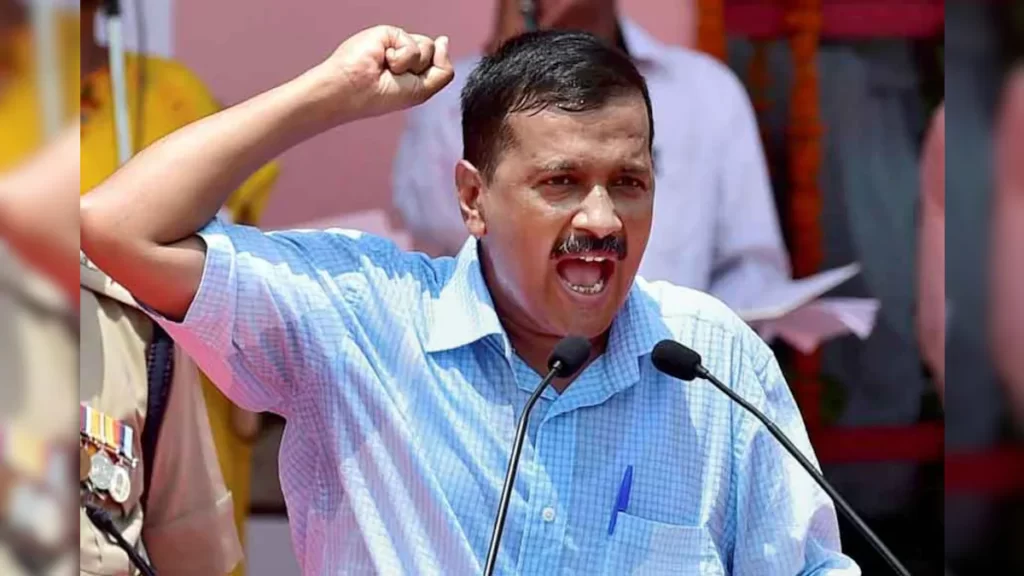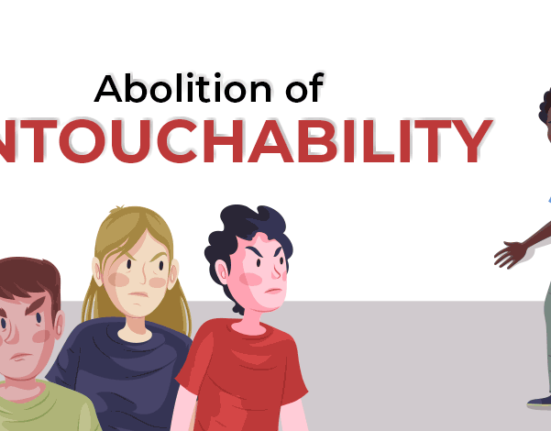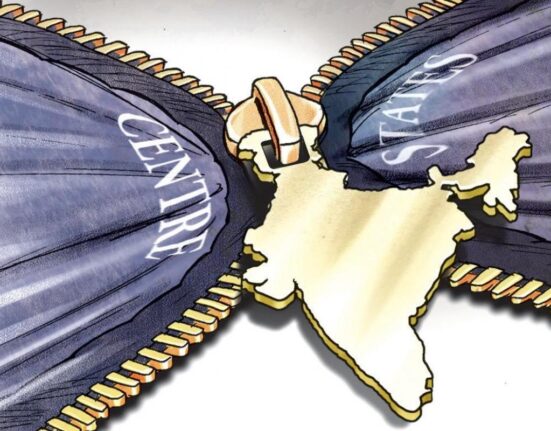This Article is written by By Rishabh Taneja & Harnoor Johal, both the authors are students of Lovely Professional University. This Article tries to explore the circumstances in which political promise made by the leaders, could seek judicial enforcement in the Court of law.
ABSTRACT
There is a routine saying in the public belt circuit that “promises are meant to be broken.” In the current political connotation this saying is often galvanized into practice. Political parties, government officials and representatives often make promises to the public only to disregard them after escalating to power. In social context, a common man often cribs about this and might think “what can be done?” The legal answer to this is to make these leaders abide by their promise to the public by getting it enforced through the courts. This article tries to explain that how promises, which are made by the political leaders, are to be enforced in the courtrooms through the evolving jurisprudence, particularly the “doctrine of legitimate expectation” and the “doctrine of promissory estoppel” can be invoked as tools for a common citizen to enforce a promise made by their government, subject to the scrutiny of courts & get them enforced judicially.
This article tries to explore the circumstances in which political promise made by the leaders, could seek judicial enforcement in the Court of law and the key ingredients of legitimate expectations that a citizen has from his government on the basis of trust & what restrains the government from transgression of the promise on the basis of estoppel.
AN INTRODUCTORY REVISIT TO THE LEGITIMATE EXPECTATIONS AND PROMISSORY ESTOPPEL
In simple words, whenever, a common citizen has an expectation of being treated in a certain way by an administrative authority, in the absence of a clear right to be treated in the way, he expects his administration to treat him; he is supposed to have a “legitimate expectation” from his administration. [1]
Whenever, any administrative authority makes an express promise or the existence of a practice which a common person can ‘ordinarily’ and ‘reasonably’ expect to continue, a legitimate expectation on the part of the common man arises. So essentials of this doctrine, as propounded in the case of Madras City Wine Merchants’ Assn. v. State of Tamil Nadu[2] are as follows:
1. That there is an express promise held out or representation made by a public authority;
2. Existence of a past practice which the citizen can reasonably expect to continue;
3. Such promise or representation is clear and unambiguous.
On the other hand, the estoppel may be defined as a rule which precludes a person from saying one thing at one stage, and another thing, totally inconsistent with the earlier one, at another stage.[3]It is essentially a bar which prevents a party from putting up a claim inconsistent with the position; he previously took either by words or by conduct. So, the essential elements of estoppel are as follows:
1. There must be a representation or a conduct, amounting to a representation;
2. The other party to whom such representation was made must have acted upon such representation;
3. The party must have suffered after acting on the representation that was made.[4]
The most recent case which perfectly exemplifies this concept & centers into this domain is the Delhi High Court case titled Najma v. Govt. of NCT Delhi[5], where a single judge bench of the Delhi High Court of Hon’ble Justice Pratibha M. Singh, delieverd a detailed judgment that how an oral promise, which is made in complete absence of any formal policy, can be enforced.

On 29th March, 2020, a press conference was conducted by the Chief Minister of Delhi, Sh. Arvind Kejriwal, in the social backdrop of the COVID-19 pandemic, requesting landlords to postpone the collection of rent from those tenants who were poor & poverty stricken. In the same press conference, he made a very clear statement that if any tenant is unable to pay rent due to the poverty, the government would step in and pay the rent on their behalf to the landlord. [6] Consequentially, a batch of six petitions filed under Article 226 of the Constitution of India , was clubbed together. Five petitioners were the daily wage laborers; who were unable to pay the rent due to poverty and one petitioner (Petitioner No. 4) to be precise was a landlord who did not receive the rent from the tenet; only on the assurance or the promise made by the Ld. Chief Minister of Delhi. According to the petitioners, the solemn assurance given was so “clear and categorical” that the daily laborers were entitled to seek payment of rent & the landlords were entitled to reimbursement of rent from the government.
An innovative contention was made by the petitioner by reading into the constitutional framework of Article 21 and their bone of contention was that since right to shelter is a fundamental right; and the government by giving such assurance to various tenets and landlords is bound by the representation, which further has been given by the highest functionary of the government i.e. the Chief Minister. Not abiding by the representation and conduct could potentially breach the trust between the government and the citizenry.
The respondents had an equally innovative contention as they submitted that legitimate expectation can only be based on an “actual government policy” or “a government notification” or an “executive decision.” The impact assessment of this contention implicates that there must be a scheme which must be propounded by the government after due consultation with the cabinet. Any promise which is made orally or a mere political statement, which is not accompanied by any formal policy, in the public domain cannot be regarded as a base of legitimate expectation.
There was an innovative litigation from both the parties & the Hon’ble Court was tasked to decide that, whether or not, a promise made through a mere political statement can be regarded as invoking legitimate expectation or not; provided that there is a clear absence of any express notification or formal decision on the part of the government.
Reading this statement in the light of the ingredients of the Estoppel doctrine, it becomes crystal clear that there was a clear representation on the part of the Chief Minister in the first instance i.e. payment of the rent by the Government. The second ingredient of estoppel is that the other party, to whom such representation was made, must have acted on such representation. During the lockdown, the Chief Minister requested the migrant workers, not to leave Delhi in order to contain the catastrophic spread of the COVID-19 pandemic. The Chief Minister, in very emphatic terms made a clear promise regarding the rental payments to landlords and tenants. On the basis of this assurance, both the parties i.e. the tenants and the landlords, did not leave the city and postponed their rental collections. Technically, the acted on such a representation and altered their position by not migrating to their home towns, which therefore fell within the scope vicinity of the estoppel doctrine. Lastly, this promise by the government was not honored & they suffered exorbitantly. Likewise, all the mandates in the estoppel doctrine were fulfilled in the present case.
INTERNATIONAL PRECEDENTS
In the case of R v. Liverpool Corporation, ex parte Liverpool Taxi Fleet Operators Association,[7] the Court of Appeal of Civil Division of the United Kingdom was dealing with the licences of tax cabs issued by the Liverpool Corporation. The Taxi cab owners wanted a limit on the number of licences whereas, cab drivers sought an increase, in order to compete with unlicensed private cars. When a proposal was made to increase the licence numbers, the Town Clerk gave an assurance that all the interested parties would be heard before reaching the core decision. The authorities reneged on this & no hearing was afforded to the association. The Court held that any action which is incompatible with the assurance was unfair & ordered for a proper hearing for the members of association.
In the Attorney General v. Ng Yuen Shiu (and Cross-appeal)[8] , an appeal was filed against the Privy Council against the judgment of the Hong Kong Court of Appeal. The immigrant in the case was taken to Macau when he was three years old. He illegally entered Hong Kong in 1967 but was noticed by the authorities in 1976. A removal order was passed against him in March 1976; but in April 1976, he re-entered Hong Kong. In 1980, a policy was introduced by the Government of the Hong Kong and it was stated that illegal migrants from China will be repatriated & those from Macau would be interviewed in due course (the Governor made this representation). When the person was called for enquiry, he was detained and a removal order was passed against him. The Court held that if the public authority had to follow a procedure, and has assured to that extent, it has to act fairly and implement its promise of conducting the interview.
In the Queen (on the application of Asif Mahmood Khan) v. the Secretary of State for the Home Department Ex Parte[9] , a Pakistani migrant in UK was given amnesty in 1975. Since the migrant & his wife could not have children, they decided to adopt the child of a relative. They sought advice from the Bureau regarding adopting a child. The authority responded that no child could be brought into UK for adoption. But, the Home Secretary had discretion in this regard to bring the child in UK for adoption, as an exception. The procedure was clearly mentioned in a letter which was received from the Bureau. The migrant followed all the due process, but the adoption was refused by the Home Secretary on the ground of non-satisfaction. By a wafer-thin majority of 2:1, the Hon’ble Supreme Court held that the letter did afford a legitimate expectation to the extent that the procedure would be followed. So, the migrant was given a full opportunity to make a representation before the Secretary of the State.
INDIAN PRECEDENTS
In Motilal Padampat Sugar Mills & Co. Ltd. v. State of Uttar Pradesh & Ors.[10], the petitioner was engaged in the business of manufacturing of sale and sugar. An assurance was given by the Secretary of Industries, Department of Uttar Pradesh, that the State government would give concessions in sales tax, if any person sets up a vanspati unit; and it was also reported in a national newspaper. The petitioner informed the government regarding the same & a confirmation was given by the director of industries that there would be no sales tax for a period of three years on the finished product. He was reassured of the same and the government gave a green signal to the petitioner for setting up a factory. However, there were second thoughts with the government for exemption & the government went back on its policy that only a partial concession would be given for a period of three years instead of the full concession. The question which arose before the Hon’ble Court was that whether thye doctrine of promissory estoppel could be invoked against the assurance of the government for no sales tax for a period of three years. The Hon’ble Supreme Court, speaking through Justice P.N. Bhagwati held:
1. No pre-existing relationship is required for enforcement of such promise or assurance;
2. If one of the promise had been made, through its word or conduct, a clear promise intending to create legal relations, the said doctrine of promissory estoppel can be invoked;
3. If the person has acted on the strength of such a promise, then it would be binding.
In Union of India v. Indo-Afghan Agencies[11], a Foreign Export Promotion Scheme permitted an exporter to import raw material coterminous to 100 per cent Freight on Value (FOV) of export. It was reneged on by the government; which defended itself by invoking the doctrine of “executive necessity”. The Court finally observed that “the government cannot claim to be immune from the applicability of the rule of promissory estoppel & repudiate a promise made by it on the ground that such a promise may fetter its further executive action.” So, the doctrine of executive necessity was negative in this case. The court indirectly warned the government to follow “a high standard of rectangular rectitude while dealing with the citizens.”[12]
The Court in the same case carved out an exception to the promissory estoppel. The Court broadly held that the doctrine of promissory estoppel can only be displaced when the government contends and proves that there is an overriding public interest in non-enforcement of promise. The burden of proving the same would lie exclusively on the government.
Lastly, the Court relied on above decisions, along with an entire litany of settled jurisprudence and carved out principles for the application of the Doctrine of promissory estoppel and legitimate expectations. The Court observed that in this case i.e. Najma v. Govt. of NCT Delhi[13], there was an unequivocal oral promise and assurance which was given by Sh. Arvind Kejriwal, but there is no policy before the Court. The main ratio which was given in Paragraph 98 of the judgment was as follows:
1. The doctrines of promissory estoppel and legitimate expectations are based on the axiom that people trust the government.
2. In a democratic setup, the persons who hold an elected office are responsible to honor their promises made to the citizens.
3. A reasonable & legitimate expectation would arise on the behalf of the citizens, whenever a promise is made by such a higher Constitutional functionary such as the Chief Minister.
4. Although the court acknowledge that it was not the “positive decision making” which was arbitrary but “lack of decision making” or “indecision”, which in this case according to the Court was contrary to law.
CONCLUSION- “ITS’ THE COMMON MAN’S PERSPECTIVE”
The Respondents placed reliance on the Article 166 of the Constitution of India and argued that any decision of the Government has to be taken in the name of the Governor, in consultation with the Council of Ministers; which was not done in the present case & it cannot give rise to a legitimate expectation or promissory estoppel.
The Court did not consider this argument “tenable” & observed that from a common man’s perspective or from a citizens’ perspective, the people could believe that the statement made by a Chief Minister can be relied and trusted. The Court refused the bearing of Article 166 in the present case & stated that it is not the complete decision; but the complete indecision, which has been challenged in the case. Henceforth, the Delhi Government was made to duly honor its promise by making a clear policy, under which the petitioners could claim their amount and reimbursements. This case was indeed a landmark case which beautifully laid down the details of invoking doctrines of expectations and estoppel and that too in the absence of a clear right. The main spirit between a citizen and the government is the “spirit of trust” which ought not to be breached at any cost.
[1] C.K. Takwani, Lectures on Administrative Law,(6th Edn)., Page 342.
[2] (1994) 5 SCC 509
[3] C.K. Takwani, Lectures on Administrative Law, (6th Edn), Page 477.
[4] Canada & Dominion Sugar Co. Ltd. v. Canadian National (West Indies) Steamships Ltd., 1947 AC 46:62 TLR 666.
[5] W.P. (C) 8956/2020.
[6] Sobiam Rocky Singh, Live Up To Your Promise To Pay Rent For Poor, HC tells Kejriwal, available at: https://www.thehindu.com/news/cities/Delhi/live-up-to-your-promise-to-pay-rent-for-poor-hc-tells-kejriwal/article35479620.ece , last seen on 03/10/2021.
[7] [1972] 2 ALL ER 1989.
[8] [1983] 2 AC 629.
[9] [1984] 1WLR 1337, [1984] EWCA Civ 8.
[10] AIR 1979 SC 621
[11] [1968] 2 SCR 366
[12] AIR 1979 SC 621
[13] W.P. (C) 8956/2020
![]()







Leave feedback about this